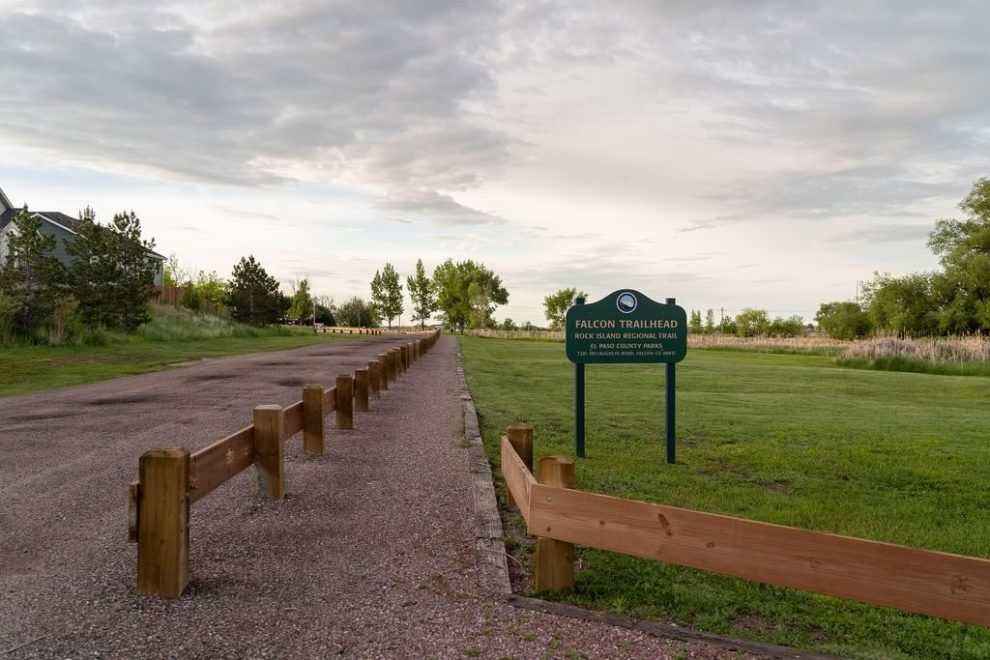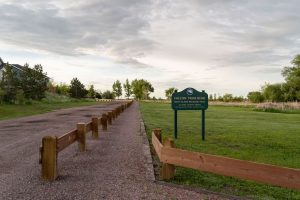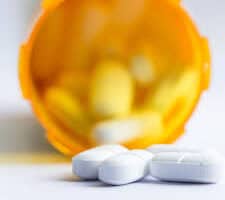By Dr. Paul Mayer, co-medical director of El Paso County Public Health
During the cold and flu season, most of us are on the lookout for symptoms of cold, flu and COVID-19, but another respiratory illness is also spreading in the winter months: RSV (respiratory syncytial virus). You may have heard about the dangers of RSV on the news, but there’s a lot more to know about this common illness. Keep reading to learn four key facts about RSV.
.
- RSV spreads easily, but it isn’t severe for most people.
RSV is highly contagious, and nearly all children become ill with RSV by their second birthday. You can become sick with RSV multiple times in your life. Typical symptoms of RSV include cough, runny nose, sneezing, low-grade fever and headaches for one to two weeks. Most people won’t know the difference between RSV and a cold or flu virus, though a doctor can test to be sure.
2. RSV can cause severe illness in high-risk people.
RSV is concerning for certain high-risk groups, including babies, older adults, people with heart and lung disease, and those with weakened immune systems. For higher risk people, RSV may lead to severe infections like pneumonia and bronchiolitis, an inflammation of the small airways in the lung.
Signs of a more serious RSV infection include fever, severe cough, wheezing, difficulty breathing, and bluish skin color. Babies may also be very tired, less interested in feeding and irritable. Those showing these severe symptoms should seek immediate medical attention.
3. Higher-risk people can protect themselves from RSV.
Fortunately, there are two ways to protect those most at risk from RSV: a vaccine and monoclonal antibodies. Both methods provide protection against severe illness and hospitalization. Which method to use depends on your age:
- Those age 60 or older should talk to their doctor about the RSV vaccine. You and your doctor can make an informed decision about whether the RSV vaccine is a good option for you.
- The RSV vaccine is also recommended for people who are 32 to 36 weeks pregnant. When the mother is vaccinated for RSV, some of the antibodies she makes to the vaccine will pass to her fetus, providing immediate protection to a newborn infant.
- Infants under 8 months, as well as high-risk infants ages 8 to 19 months, are recommended to receive the monoclonal antibody treatment known as nirsevimab (brand name Beyfortus).
4. Don’t forget the basics.
To prevent the spread of RSV and other respiratory illnesses, remember to wash your hands frequently, cover your mouth and nose when you cough or sneeze, frequently clean touched surfaces, avoid touching your face, and stay home when you’re sick.
Heart knowledge
By Erin Malcolm
February is American Heart Month; each year, it’s the month that Americans are encouraged to focus on their heart health.
According to a Colorado state fact sheet by the American Heart Association, Colorado has the third lowest cardiovascular death rate in the United States.
While that is something to celebrate, it doesn’t change the fact that heart disease is still the No. 2 cause of death in the state, according to the same source.
One person dies from cardiovascular disease every 33 seconds in the United States, according to the Centers for Disease Control and Prevention.
Prevention, recognizing warnings and emergency actions can decide the difference between life and death, which is why local experts at the UCHealth Memorial Hospital in Colorado Springs and the Denver office for the American Heart Association take community education seriously.
Knowing about the various heart-related illnesses is important to one’s health.
Lyndsey Albright, communications director for the American Heart Association in Denver, said, “People often use the terms heart attack and cardiac arrest interchangeably, but they’re not the same. A heart attack is when blood flow to the heart is blocked. Sudden cardiac arrest is when the heart malfunctions and suddenly stops beating.”
Although the confusion is not surprising; Albright also mentioned that the two distinct heart events are closely linked. “Heart attacks increase the risk for sudden cardiac arrest,” Albright said. “Many heart attacks don’t immediately lead to sudden cardiac arrest, but when sudden cardiac arrest occurs, heart attack is a common cause.”
Additionally, Cary Vogrin, spokesperson for UCHealth Memorial Hospital, mentioned that many people don’t know the difference between a heart attack and a stroke. While both events are caused by blood flow blockages, a heart attack is the result of a blockage to the heart and a stroke is the result of a blockage to the brain.
A stepping stone from learning about types of heart events is to become familiar with the signs and symptoms associated with them.
Lisa Meyers, a registered nurse who is the cardiovascular coordinator at UCHealth Memorial Hospital responsible for offering cardiac education to the community, said, “It’s very important to know the symptoms of a heart attack, as it can save your life.”
The primary heart attack symptoms that Meyers pointed out:
- Chest pain, chest pressure and or discomfort
- Discomfort or tingling in one or both arms, back, shoulder, jaw or neck
- Shortness of breath
- Cold sweat
- Heartburn-like feeling
- Nausea or vomiting
- Sudden dizziness or fainting
Meyers also noted that women are more likely to have varying symptoms:
- Heartburn-like feeling
- Unusual tiredness
- Sudden dizziness
- Nausea or vomiting
- Cold sweat
“No two heart attacks are the same,” Meyers said. She emphasized the importance of recognizing that the sudden crushing chest pain, pressure and tightness often associated as the primary heart attack symptom is not the only symptom.
Even someone who has suffered a heart attack in the past might experience a subsequent heart attack with completely different symptoms, so in the case of heart events, Meyers said that it’s crucial to “be aware of your body and how you are feeling.”
Both Albright and Meyers urged people to immediately seek help and call 911 when experiencing any heart attack warning signs.
“Remember that every second counts when you are having a heart attack,” Meyers said. “Paramedics can start treatment on you as soon as they arrive. They can also give you the medications needed to help preserve your heart function.”
If a bystander notices someone having a heart emergency, knowing and performing hands-only CPR could save their life, too, according to the UCHealth Memorial Hospital team.
“CPR, especially if performed immediately, can double or triple a cardiac arrest victim’s chance of survival, which is key since about 90% of people who suffer out-of-hospital cardiac arrests die,” Albright said.
In March, several health care providers in the community, including emergency services responders, will be offering free hands-only CPR classes. For information about the upcoming classes, contact UCHealth Memorial Hospital at 719-365-2296.
On a national scale, the American Heart Association is also launching a new CPR-focused movement during the month of February. The initiative, called Nation of Lifesavers, aims to double the survival rate of cardiac arrest by 2030 by making CPR easier for everyday people to learn. Albright said, “With more than 350,000 people experiencing cardiac arrests outside of a hospital each year, including 23,000 children, CPR is a critical skill that kids as young as 9 years old can learn.”
Also at the forefront of education efforts is teaching preventive measures.
“A healthy lifestyle is the best defense against heart disease,” Albright said.
That lifestyle means implementing a healthy diet (Meyers said the Mediterranean Diet is considered one of the healthiest); not smoking — Meyers said smoking is a leading cause of heart attacks; limiting alcohol consumption; maintaining a healthy weight; and exercising to reduce stress, lower blood-pressure and cholesterol, which are all vital for a healthy heart.
For more in-depth teaching on a variety of heart health topics, a local resource is the Healing Hearts Academy, hosted by UCHealth Memorial Hospital.
“The Healing Hearts Academy is a live, virtual monthly class/session — usually 45 to 60 minutes long — in which a UCHealth professional provides education on various topics of interest,” said Geri Montelongo, BSN, RN, CHFN, who is the heart failure coordinator for UCHealth Memorial Hospital. “Our speakers are from every UCHealth region in the state, and they are experts in their profession, be it about heart failure, proper medication, nutrition, diabetes or exercise.”
The classes are open free of charge for anyone from patients to caregivers and family members.
“Our goal is to engage and motivate community members to take steps toward creating a culture of health by providing them with education on how to manage their heart condition and improve self-care,” Montelongo said.
Anyone interested in attending a session can email mhs-hfeducation@uchealth.org to get started.






